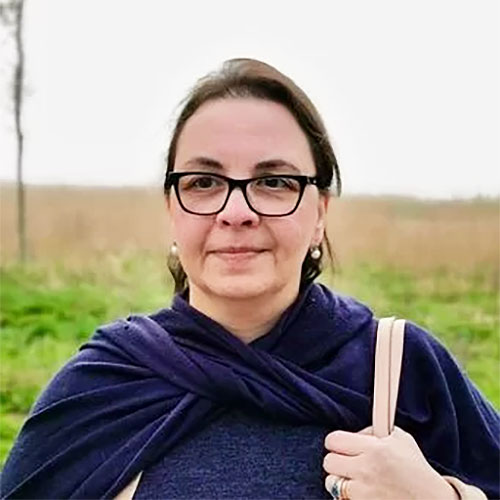Maria Claudia Solarte-Vasquez, LLM, Ph.D is a solicitor specializing in transaction design, and a senior lecturer with expertise in post regulatory strategic governance models, self-regulation and the evolution of exchange relations.
This involves the development of quality standards and criteria to assess all legally relevant Products, Services, Interactions, Processes and Systems (PSIPSs) with legal relevance. She has designed, conducted, and assisted interdisciplinary studies and legal innovation as a researcher, lecturer and mentor, for over 25 years. She has facilitated the learning of legal theories and perspectives for non-law students, and the integration of various disciplines in legal curricula.
She can ‘translate’ political sciences, international relations, business management and Human-Computer Interaction (HCI) content to law students, communicating their fundamental tenets within courses in various legal topics. Her strong foundations in legal theory and philosophy of law allowed the formation of meta-theoretical strategies to combine areas of interest so diverse as regulatory theory, semiotics, quality governance, legal innovation, transaction design techniques, and others, into models of exchange relations that serve both the public interests and the individuals.
She has been part of an extensive network of legal innovators and a community of experts in proactive law and legal design for more than a decade, and recently, she has begun collaboration projects with cybersecurity education research groups.
She continues to focus on the parameters to operationalize attributes of PSIPSs and the efforts to turn them into novel legal categories. Her key contribution has been the “smart” strategy for transaction design and the Taxonomy of Legal Usability (UX) and User Experience (UXI) Factors, which was the first set of measurable parameters synthesized in the field, grounded on the current European legal and policy framework. The Taxonomy is more important than ever as a methodology tool to build a smooth transitional pathway to automation because it establishes the basic responsive -human-centered- and responsible criteria that the European Union (EU) policy and legislation purport to advance.
Dr. Solarte-Vasquez conducted post-doctoral research at the Accounting Department of Aalto Business School in Finland, in 2019. Currently, she is affiliated with the School of Business and Governance of Tallinn University of Technology, Estonia, where she obtained her Ph.D in business management. Her Master of Laws (LL.M.) in international business transactions and public international law was awarded by the Washington College of Law of The American University, in The United States. She graduated from the Bachelor program in law and political sciences at the Bolivariana Pontificia University, in Medellin, Colombia.

